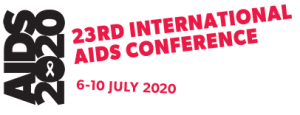
By all accounts, the world is terribly off track to meet global targets to curb new HIV infections. This is especially true for gay and bisexual men and other key populations who have been systematically denied rights, equity, and justice in the HIV response. 2020 is a critical year for communities to reclaim the global HIV response. This post by MPact Global Action for Gay Men’s Health and Rights shares messages that advocates for gay and bisexual men and other men having sex with men should use while participating important forums such as AIDS2020 and HIV2020.
Gay & Bisexual Men at the Center of the Response
- Gay and bisexual men are best equipped to help members of our communities to access and adhere to services.
HIV programs must meaningfully engage gay and bisexual men in every aspect of research, design, implementation, evaluation, and redesign. - Formalized positions must be created to enable gay and bisexual men to dialogue with National AIDS Commissions, donors, and implementing partners regarding the HIV response.
- Organizations led by gay and bisexual men should be funded to conduct community-led monitoring on the acceptability, accessibility, affordability, and quality of services, and utilize data produced from this community-led monitoring to continually improve services.
- Community led services will be limited in reaching and serving gay and bisexual men in criminalized settings
The Human Rights of Gay and Bisexual Men Need to be Protected for a Successful HIV Response
- Discriminatory and punitive laws, policies, and practices reduce the efficacy of the HIV response and exacerbate risk for HIV among gay and bisexual men.
- Governments should fully decriminalize:
o Consensual same-sex relations between adults
o Gender identity and expression
o Sex work
o Drug use and possession; and
o HIV non-disclosure, exposure, and transmission. - Poverty, racism, sexism, homophobia, transphobia, and xenophobia hurt heath; the HIV response needs to take into account these multiple and intersecting structural barriers.
- Violence perpetrated on the basis of sexual orientation and gender identity and expression particularly impacts the ability of gay and bisexual men to seek and continue services.
Gay and Bisexual Men Need Combination Approaches for HIV Testing, Prevention and Treatment as Part of Holistic Sexual Health Services
- All sexual health and HIV programming should emphasize a holistic approach to well-being that embraces pleasure and endorses harm reduction and mental health.
- All HIV services must be free from judgment, stigma, and discrimination and must be sex-affirming, honor self-determination, and respect bodily autonomy.
- Biomedical responses are only part of the solution: prevention programs must also address upstream factors and support tailored strategies for community mobilization.
- PrEP programming for gay and bisexual men must be brought to scale, inclusive of demand generation, risk reduction counseling, literacy, adherence, and support.
- Healthcare professionals should always act in the interest of their clients, even when national or sub-national laws or policies oppose human rights.
- PrEP in all forms must be made available at affordable prices.
Gay and Bisexual Men Need Earmarked International and Domestic Funding
- Political will and insufficient engagement of the community remain the primary barriers to targeted resource allocation and investment for gay and bisexual men.
- Funding allocations should be proportionally based on HIV burden and based in evidence, human rights, and community engagement.
- More investment and financial support should be directed to core funding for community- and key population-led networks, coalitions, and consortia.
- Flexible emergency response funding and funding to support longer-term social change for gay and bisexual men is necessary in all regions.
- Domestic resource mobilization should be scaled-up for gay and bisexual men, particularly in countries that are transitioning from international donor support.
- Programming for gay and bisexual men should be safeguarded as funding priorities shift amid the COVID-19 crisis.
Gay and Bisexual Men Need to be Accounted for and Reflected in Global and National Targets
- Data must be disaggregated by sexual orientation, gender identity and expression in a way that is safe, responsive and confidential.
- Community-based participatory action research should be funded and recognized as a source of rigorous and robust data that will inform the response.
- Civil society organizations led by gay and bisexual men should actively participate in parallel reporting processes, such as Global AIDS Monitoring, the Universal Periodic Review, and Voluntary National Review of Sustainable Development Goal implementation to offer a complementary analysis of progress on achieving HIV targets.
- More data should be collected and analyzed regarding funding needs and gaps.
- Governments, multilateral agencies, and bilateral development agencies should meaningfully consult gay and bisexual men to ensure that targets and indicators are inclusive and feasible to measure progress on the HIV epidemic.
The COVID-19 Response Can Not Leave Behind Gay and Bisexual Men
- To ensure that COVID-19 doesn’t further threaten progress on achieving global HIV targets, all HIV responses need to expand partnerships with community-led organizations, networks, and consortia.
- All statements and misinformation that scapegoat, slander, or otherwise blames LGBTI people for the spread of COVID-19 must be unequivocally denounced.
- Efforts to decentralize HIV services should bolster pre-existing community-led strategies during COVID-19.
Inequalities and economic precarity are amplified during COVID-19, and special measures and programs should be enacted to protect gay and bisexual men. - Governments must acknowledge barriers to meaningful participation of gay and bisexual men in virtual meetings during the pandemic.
